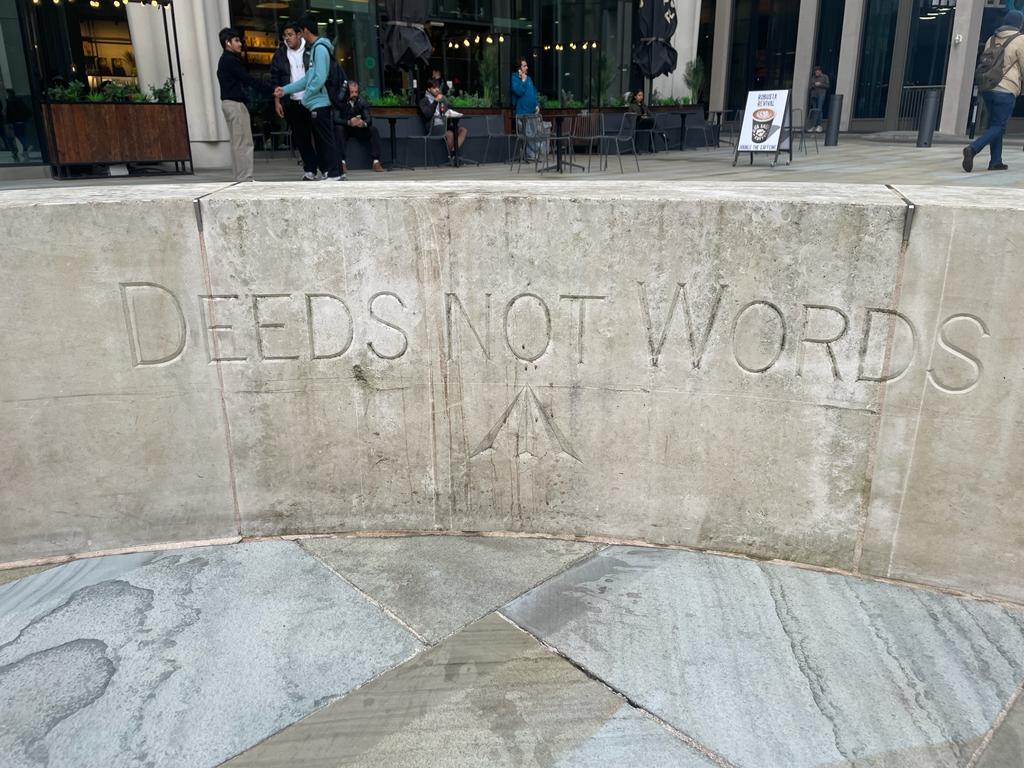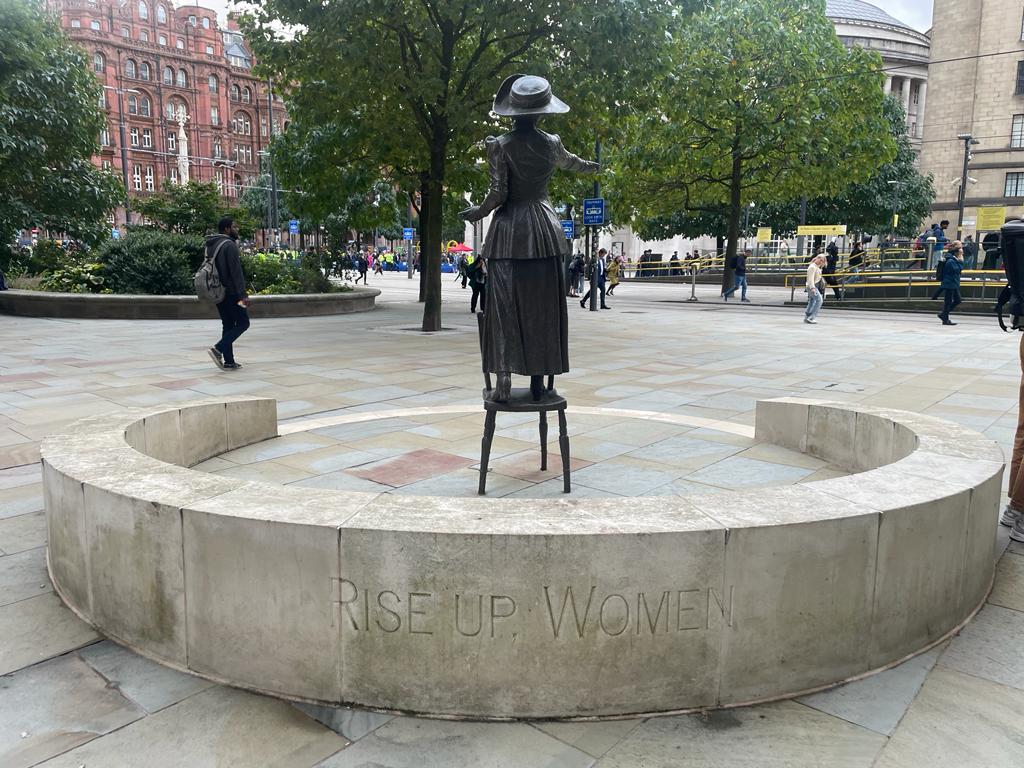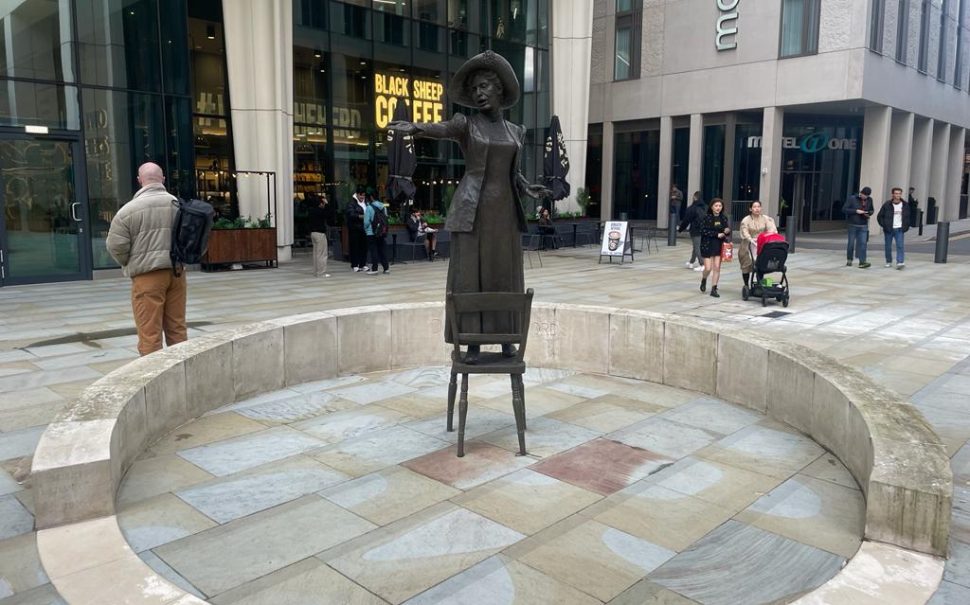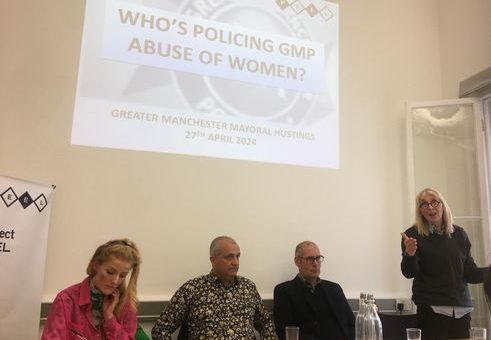This week marks 120 years since Manchester’s Emmeline Pankhurst set up the Women’s Social and Political Union (WSPU), the formal organisation representing the suffragettes.
The WSPU – founded on the 10 October 1903 – sought to use physical confrontations, including direct action and civil disobedience, to strive for women’s suffrage.
Its establishment by Pankhurst was crucial in achieving the right to vote for women in the UK, making her one of the most important figures in British political history.
Born in Moss Side in 1858 as Emmeline Goulden, her upbringing was dominated by a family tradition of radical politics.
In 1879, Goulden married Richard Pankhurst, a barrister and socialist who also lived in Manchester. The lawyer was a supporter of the women’s suffrage movement.
The two founded the Women’s Franchise League in 1989, an organisation designed to campaign for the right of married women to vote in local elections.
The organisation did manage to secure the vote for some married women in local elections. However, the league broke up in 1903, five years after the death of Richard.
It was replaced by the militant and women-only organisation the WSPU in 1903, which Emmeline set up with her daughter Christabel.
This group differed from the suffragists, departing from their peaceful protest of petitions, marches and pamphlets.
Their motto, “Deeds, not words”, meant ctivists staged hunger strikes, assaulted police officers and smashed windows in their pursuit of women’s suffrage.

This radicalism was best displayed by WSPU member Emily Davison, who was killed after throwing herself under the king’s horse at the Derby in an act of protest.
Her death was treated negatively by the media initially, but thousands attended her funeral and her efforts are credited with provoking a change in attitude in society.
The WSPU members also used hunger strikes to protest, to which the authorities responded with violent force-feeding.
Pankhurst herself was arrested multiple times. In 1913, the government passed an act dubbed the ‘Cat and Mouse’ Act.
Hunger striking prisoners were released until they had regained their strength, before being re-arrested.
The struggles of the WSPU were ended by the dawn of the First World War in 1914, as women turned their efforts towards the conflict.
However, the shortage of workers because of the war led many women to take on traditionally male roles to support the war effort. As a consequence, societal attitudes changed on the capabilities of women.

After the Allied Powers victory, Parliament passed the 1918 Representation of the People Act in the face of these changing attitudes.
The legislation gave the vote to all men over 21, regardless of whether they owned property or not. Only women over the age of 30 who met a property qualification, or whose husband did, were given suffrage, enfranchising 8.5 million women.
It took over a decade for all women over the age of 21 to gain the right to vote, regardless of any property qualification. The law, passed in 1928, added a further five million women to the electorate.
Pankhurst was unable to see women achieve full electoral equality during her lifetime. She died on 14 June 1928, just weeks before the legislation was passed.
Her efforts and the importance of the WSPU are commemorated in Manchester, her place of birth.
In St Peter’s Square, there is a statue of Pankhurst with the quotes “rise up women” and “deeds, not words”, as a testament to her efforts in the extension of the franchise and the fight for equality between the sexes.




